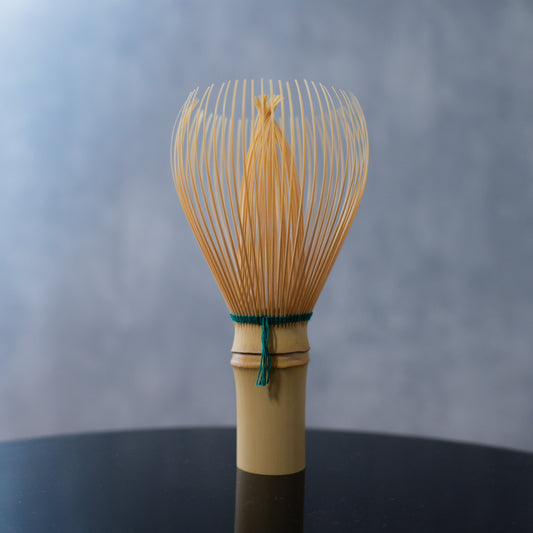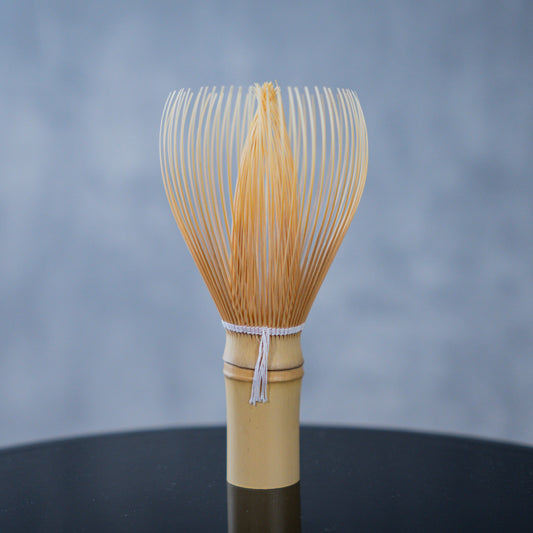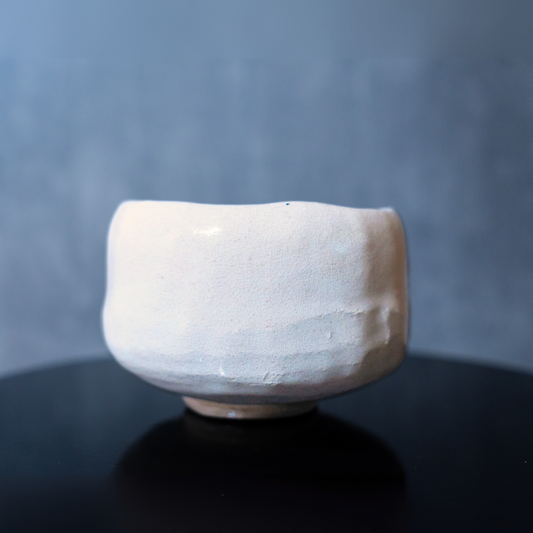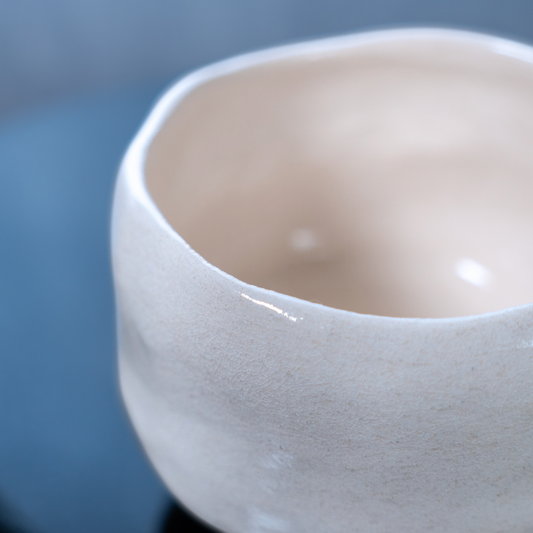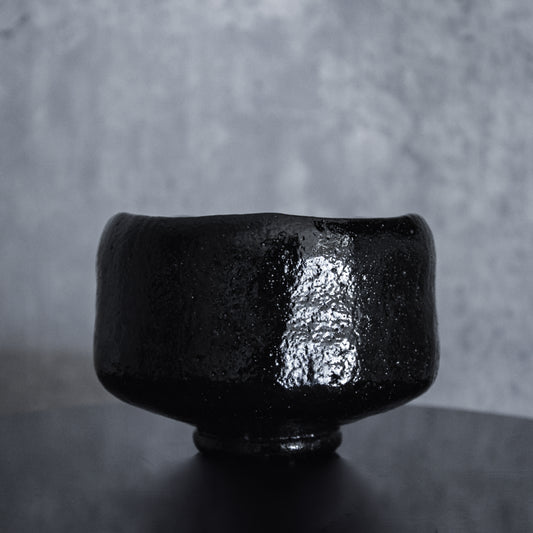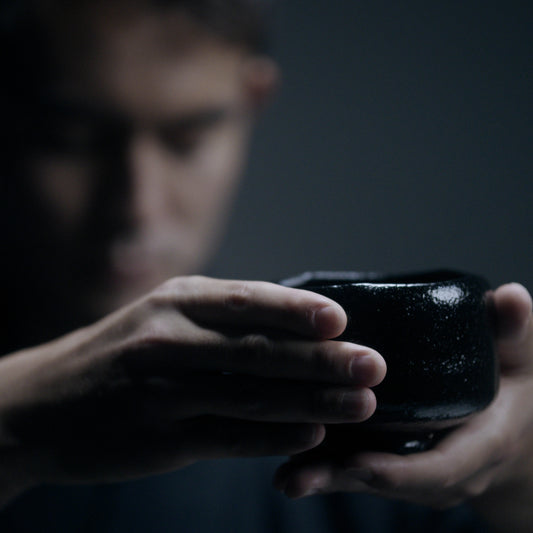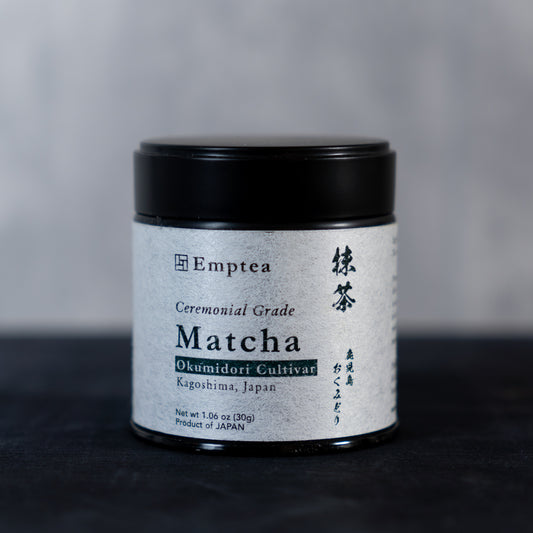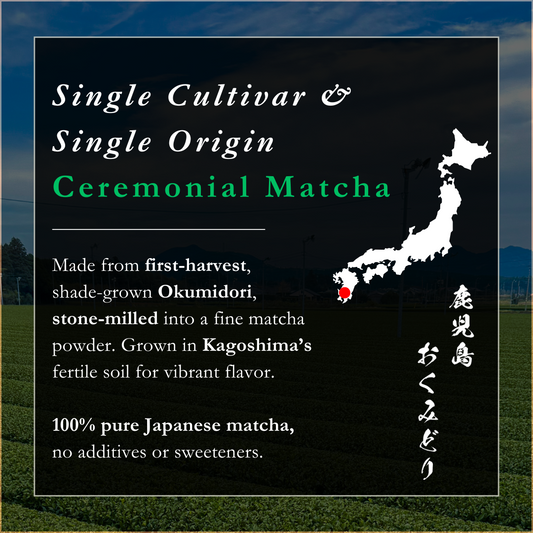Welcome to Matcha 101, where we explore the basics of this matcha green tea powder. Used traditionally in the Japanese matcha tea ceremony, it's known for its vibrant green color, distinctive flavor, and numerous health benefits. There's a lot more to drinking matcha than meets the eye. Let's explore together!
- History of Matcha
Matcha originated in China and was later introduced to Japan in the 12th century. Initially consumed by Buddhist monks as medicines and for meditation, matcha later spread to the nobility and samurai class, becoming an essential component of the Japanese matcha tea ceremony. Refined and developed by Sen no Rikyu, it incorporated Zen and wabi-sabi principles, reflecting Japan's traditional aesthetics and spirituality through meticulous rituals.

- Matcha Plant
Did you know that matcha shares its same origin with black tea, sencha green tea, and oolong tea, all derived from the Camellia sinensis plant - native to East Asia.
- Production Process
Matcha (tencha) is made from shade-grown tea leaves, harvested, steamed, dried, and finely ground into a powder. Unlike other green teas, Tencha follows a unique process - it isn't rolled, and it undergoes shorter steaming to enhance its covering scent aroma.

- Nutrition and Health Benefits
As matcha involves grinding whole green tea leaves into a fine powder instead of just infusing them, it boasts high levels of antioxidants like catechins, notably EGCG, combating oxidative stress and supporting health. Packed with vital nutrients like vitamins C, potassium, calcium, and magnesium, it can supports immunity and vitality. Regular intake enhances focus, metabolism while also promoting heart health, reducing cholesterol, and alleviating inflammation, making it a versatile dietary asset.
- Sado - Matcha Tea Ceremony
Sado, the Japanese matcha tea ceremony, is a comprehensive cultural practice originating in the 15th century. It is believed that samurai also consumed matcha to calm their minds and enhance mental clarity. Tea culture, which includes matcha preparation and consumption, fosters simplicity and inner enrichment, akin to practicing 'active Zen' in a tranquil tea room.
Matcha is more than just a drink—it's a journey into Japan's vibrant culture and a path to a healthier, more mindful life. With its rich history and array of wellness benefits, matcha has become a cherished part of daily rituals. So, next time you enjoy a cup, savor not just the flavor, but the centuries of tradition and well-being it represents.


